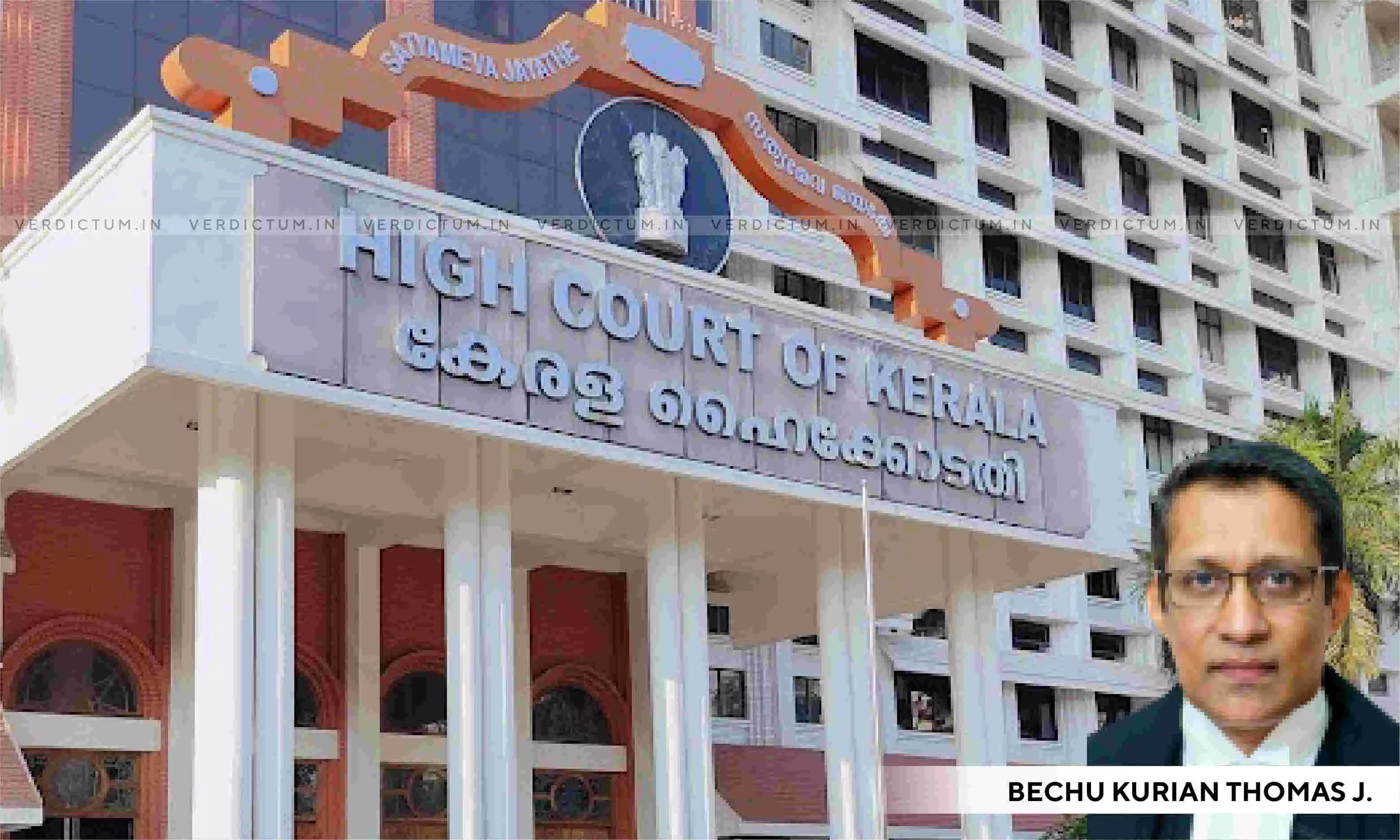
PMLA - If Proceeds Of Crime Have Emerged From Business Of Firm, Then All Partners May Have Joint & Several Liabilities: Kerala HC
 |
|While stating that a three-tier remedy is provided under the PMLA itself, as fora to alleviate the grievances of those aggrieved, the Kerala High Court observed that when such a scheme is provided for under the PMLA, petitioners do have an efficacious alternative remedy.
“These remedies, available under the statute, cannot be circumvented unless they are entirely ill-suited to meet the demands of the situation”, added the Court.
Considering the timelines provided and the nature of authorities created under the PMLA, the High Court explained that the alternative remedies cannot be regarded as ill-suited to meet the exigency, and any prejudice caused on account of the provisional attachment order can be remedied through the scheme of the Statute itself.
Noticing that the complaint filed by ED had quantified the proceeds of crime as Rs.910.29 crores, whereas the first petitioner’s share in the partnership firm was stated to be only 51% and the firm, as well as the other partner, are both accused in the money laundering case, a Single Judge Bench of Justice Bechu Kurian Thomas observed that “Section 25 of the Indian Partnership Act, 1932 creates joint and several liabilities on all the partners for all acts of the firm. Therefore, if the proceeds of the crime have emerged or flowed from the business of the firm, then, prima facie, all partners may have joint and several liabilities”.
Senior Advocate Ramesh Babu appeared for the Petitioner, whereas ASGI Sundareshan appeared for the Respondent.
The brief facts of the case were that the second petitioner is a distributor company of Sikkim Lotteries and the first petitioner is its Managing Director. The Petitioners are the first and third accused in C.C. No.218 of 2015 on the files of the Chief Judicial Magistrate, Ernakulam. After the crime was investigated by the CBI, the Enforcement Directorate (ED) registered a case which is pending before the Special Court under the PMLA.
The offences alleged in C.C. No.218 of 2015 are under sections 120(b) and 420 of IPC apart from various provisions of the Lotteries (Regulation) Act, 1998 and the Lotteries (Regulation) Rules, 2010. Of the six provisional attachment orders, except for one attachment of Rs.16 crores, all other attachments are over the properties of the petitioners. Petitioners allege that the proceeds of crime estimated by the ED is Rs.910,29,87,566/- crores, which estimation is notional, and the attachments have been affected on that basis. It is alleged that the ED had presumed that the proceeds of the crime were generated through a partnership firm by the name 'M/s M.J Associates' in which the first petitioner was a partner having only 51%. Despite the same, ED had provisionally attached properties of the petitioners for almost Rs.894 crores instead of confining the attachment to Rs.464.25 crores. Therefore, the Petitioners had approached the High Court alleging that the provisional order and the freezing orders are non-est.
After considering the submission, the Bench stated that the PMLA was enacted to deal with various aspects of the crime of money laundering, and the removal of tainted money or those derived from selected crimes is an effective mode of combating serious offences.
The Bench clarified that if the proceeds of crime have been transformed or converted into other property or have intermingled with legitimate sources, such proceeds and the assessed value of the intermingled gain assume the colour of proceeds of crime.
“The word proceeds of crime, as defined in section 2(u) of the PMLA, means any property derived or obtained directly or indirectly by any person from any criminal activity relating to a scheduled offence. The word 'person' is defined in section 2(s) as including an individual, or a firm, apart from other legal entities”, added the Bench.
The High Court elucidated that Section 8 of the PMLA deals with adjudication and states that immediately on receipt of a complaint under Section 5(5) of the PMLA, notice will have to be served in a time-bound manner, calling upon the person to show cause why the property should not be declared as those involved in money laundering and be confiscated to the Central Government.
“A person aggrieved by an order under section 8 is entitled to approach the Appellate Tribunal as per section 26 of the PMLA. Section 42 of the PMLA provides for yet another appeal to the High Court, including on any question of law or fact. The above-mentioned provisions provide for adjudication by an independent and separate authority, followed by an appeal to the Tribunal and then to the High Court, even on facts, indicating that the statute has created a code in itself, vis-a-vis the provisional attachment order”, added the Court.
The High Court, therefore, held the petition to be not maintainable given the alternative remedy available.
Cause Title: Santiago Martin and Anr. v. Union of India and Ors.
Click here to read/download the Judgment